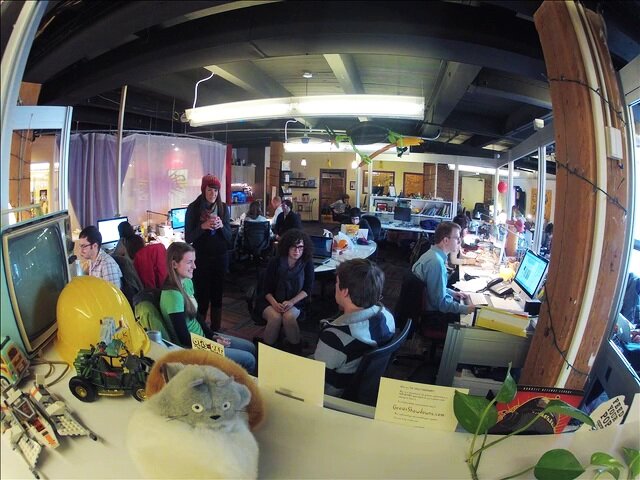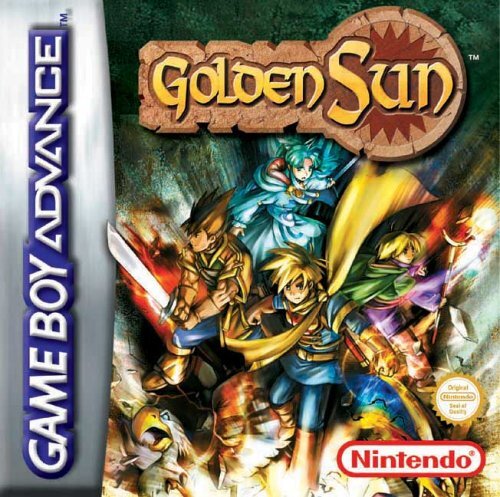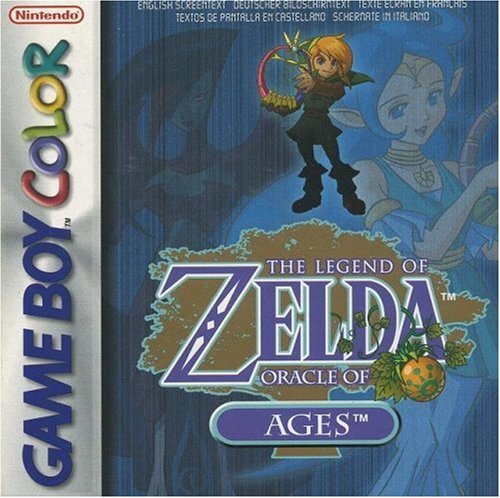FableVision developer Andrew Start is certainly not a newcomer to building educational games and interactives. With a background in programming and years working in the industry, Andrew brings a breadth of knowledge and experience not only to the projects he tackles at the studio, but also to the teams he works with.
“My favorite types of projects are ones where I can build tools that enable others to make awesome things,” says Andrew Start. “I am always happy to discuss needs, capabilities, and limitations in order to come out with the best possible product. At FableVision, I’m able to do that while working on a range of projects.”
An avid fan of games and an experienced learning games developer, Andrew “starts” his FableVision career bringing his knowledge and passion to help designers and artists build amazing games and interactives. His collaborative mindset, a key trait of FableVisionaries, ensures that FableVision doesn’t lose sight of designers’ creativity while building innovative projects for our clients. And the structures that he creates allow producers and designers to convert the clients’ visions into tangible products.
Read more to learn about Andrew’s love for games, approach to learning, and favorite llama factoid!
You’re a new FableVisionary. Welcome to the team! What is your “journey to FableVision” story?
I’ve always loved games, and I realized that I could enter the learning games industry to create games that also teach. I developed educational web games for years at CloudKid and continued that at Jibo, a social robotics company. After Jibo shut down, I focused on freelancing projects, which is how I discovered FableVision. After learning more about the studio development team, and overall culture, I accepted a full-time position here.
What does a typical day in the life of a FableVision developer look like?
The vast majority of my time is spent head-down building out code structure or fixing bugs. Each day has its own tasks and fixes needed, so no two are the same, but overall there’s a lot of staring at computer screens and pondering involved. I’ll also spend time talking with producers and artists to keep abreast of known bugs and assets that are ready to be integrated, so collaboration and creative problem-solving play a large role in my daily routine.
What is your favorite part of being a developer, and how does FableVision differ from other studios?
FableVision has a large range of clients and products, which keeps my daily work interesting. I like working on new challenges, whether I’m creating a game for a big-name client, an interactive for a museum, or a website for a small non-profit. FableVision’s varied clients and projects help me learn something new every day.
Technology has changed a lot in the years that you’ve been a programmer. How do you adapt to stay on top of current trends?
I keep track of the tools that I use and then expand my knowledge to technology and situations adjacent to those tools. I also learn a lot about current trends and resources from helping out with open source projects and chatting with other developers.
What was your favorite game growing up, and how has your love of games impacted your career path?
I don’t know that I had a single favorite game growing up, but the ones that I played multiple times were Golden Sun, The Legend of Zelda: Oracle of Seasons and Oracle of Ages, and Pokémon Gold. Beyond the puzzles honing my analytical skills, the hours lost in the games fostered a lifelong love of video games, and that pushed me toward majoring in Electronic Game Programming in college.
As someone who works in educational media, you also love to learn! Where do you go to learn new things, and what is your favorite random factoid that you’ve picked up?
I tend to learn from a variety of YouTube videos and Wikipedia rabbit holes. Most of that information gets packed deeply away, only to come out unbidden when tangentially related to whatever topic I am discussing. A fun fact that I can bring to mind, though, is the herding behavior of llamas: a single llama will form a herd with non-llama animals and aggressively defend them from threats, but two or more llamas will form a herd with each other and ignore other farm animals.
We hear that you’re a big fan of science fiction and fantasy. What are your favorite franchises, and what about those genres appeals to you?
Star Wars got its hooks into me at a young age and has stuck with me ever since. My favorite part of fantasy and sci-fi media is the world-building—I have admittedly low standards for quality of dialogue and characters, but really value an expansive and coherently crafted universe that I can spend hours (or years) exploring in my imagination.
More About Andrew
Favorite video game: I think I’ll go with my soft spot for the first Company of Heroes game, whose cover mechanics ruined other RTS games for me.
Most challenging board game you’ve ever played: Diplomacy—it’s always a challenge to come out on top of six other players who are looking to betray you (or have already been betrayed by you).
Spring or summer: Trick question—winter is best, with hot cocoa, cozy fires, and no mosquitos.
A new skill you’d like to learn: I’d like to experiment with 3D printers.
Favorite outdoor activity: Ultimate frisbee.
Three people, dead or alive, you’d invite to a dinner party: A random assortment of the game-related YouTubers that I subscribe to—the conversation should be interesting, or we could just retire to the living room for some good gaming action.










